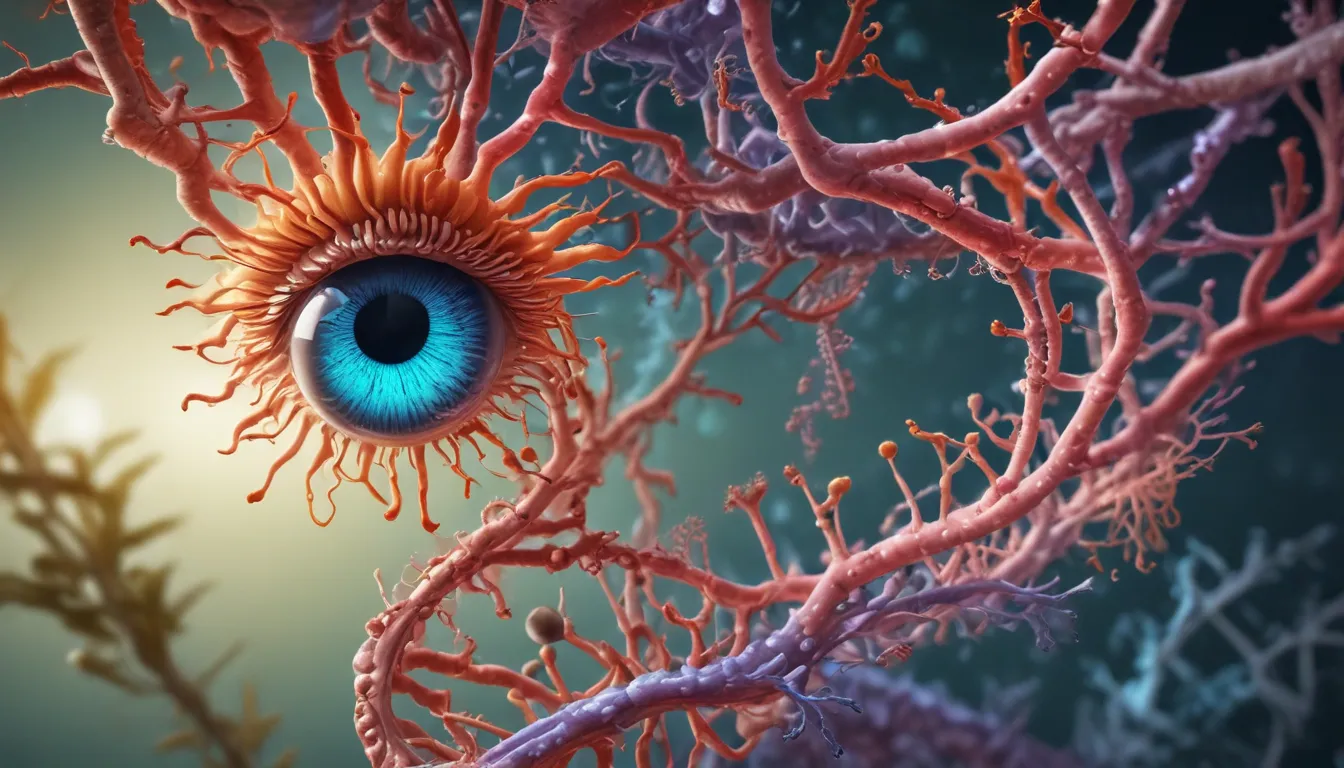A Note About Images: The images used in our articles are for illustration purposes only and may not exactly match the content. They are meant to engage readers, but the text should be relied upon for accurate information.
Welcome to the captivating world of epigenetic modifications, where gene expression is finely tuned without altering the underlying DNA sequence. These chemical changes have a profound impact on various biological processes, from development to aging and disease. In this article, we will explore 17 surprising facts about epigenetic modifications that shed light on their significance and complexity. Join us as we unravel the secrets of this intriguing field and discover how epigenetics influences our genes in ways we never imagined.
The Influence of Epigenetic Modifications on Gene Expression
Epigenetic modifications are the silent regulators of gene expression, orchestrating which genes are turned on or off in different cells and tissues. These chemical changes to DNA and its associated proteins play a crucial role in determining the fate of our genetic information, shaping our biological functions and responses.
The Heritability of Epigenetic Modifications
Surprisingly, epigenetic modifications can be inherited across generations, carrying with them the environmental imprints of our ancestors. The experiences and lifestyle choices of previous generations can leave a lasting mark on our epigenome, influencing our health and susceptibility to diseases.
Lifestyle Choices and Epigenetic Modifications
Your daily decisions, such as diet, exercise, stress management, and exposure to toxins, can impact your epigenetic patterns. By making healthy lifestyle choices, you have the power to promote favorable epigenetic profiles that support your overall well-being and vitality.
Epigenetic Modifications in Development and Aging
During development, epigenetic modifications guide the intricate process of cell specialization, shaping the diverse cell types in our bodies. As we age, changes in epigenetic patterns contribute to the aging process, highlighting the dynamic nature of gene regulation throughout our lifespan.
Reversing Epigenetic Modifications
Unlike changes in the genetic code, epigenetic modifications are reversible. By targeting and modifying these chemical marks on our DNA and proteins, researchers can potentially restore normal gene function and unlock new therapeutic possibilities for various diseases.
Environmental Influences on Epigenetic Modifications
Exposure to environmental factors, such as chemicals, pollutants, and medications, can alter our epigenetic patterns. Understanding how these external influences shape our epigenome provides valuable insights into disease development and preventative strategies.
The Intersection of Social Interactions and Epigenetic Patterns
Surprising as it may sound, social interactions and experiences can impact our epigenetic markers. The connection between our social environment and gene expression underscores the intricate interplay between our external interactions and internal biology.
Maternal Factors Shaping Epigenetic Landscapes
The maternal environment plays a critical role in shaping the epigenetic landscape of the developing fetus. Maternal factors, including diet, stress levels, and exposure to toxins, can imprint lasting effects on the epigenome during early development, influencing the health of future generations.
Epigenetic Modifications and Disease Susceptibility
Changes in epigenetic patterns have been linked to various diseases, from cancer to cardiovascular disorders and neurodevelopmental conditions. By unraveling these epigenetic changes, researchers aim to develop targeted therapies and personalized medicine approaches for better health outcomes.
Targeting Epigenetic Modifications for Therapeutic Interventions
The reversible nature of epigenetic modifications offers promising avenues for therapeutic interventions. Scientists are exploring ways to target specific epigenetic marks to treat diseases and restore normal gene function, paving the path for innovative treatment strategies.
Early-Life Experiences and Lasting Epigenetic Impacts
Early-life experiences, including prenatal development and childhood encounters, leave a lasting imprint on our epigenetic patterns. These early-life modifications can shape our health trajectory and well-being throughout our lifespan, highlighting the importance of early interventions for long-term health.
Inter-Individual Variability in Epigenetic Patterns
Epigenetic patterns can vary between individuals, even among identical twins sharing the same genetic background. This variability in epigenetic profiles contributes to differences in gene expression and helps explain the diverse health outcomes observed in individuals.
Advancements in Epigenetic Technologies
Cutting-edge technologies, such as DNA methylation profiling and chromatin immunoprecipitation sequencing, have revolutionized the study of epigenetic modifications. These advanced tools enable researchers to explore epigenetic marks on a genome-wide scale, uncovering new insights into gene regulation.
The Impact of Nutrition on Epigenetic Patterns
Nutritional factors, including vitamins and minerals in our diet, can influence epigenetic patterns. For example, folate, a B vitamin found in leafy greens, plays a vital role in one of the key epigenetic modifications, methylation, highlighting the interconnectedness of nutrition and gene regulation.
Epigenetic Modifications and Behavior/Cognition
Epigenetic modifications have a profound impact on brain development and function, influencing behaviors and cognitive abilities. Disruptions in epigenetic patterns have been associated with conditions such as addiction, depression, and cognitive disorders, underscoring the intricate link between our epigenome and mental health.
The Rapidly Evolving Field of Epigenetic Research
The study of epigenetic modifications is a dynamic and rapidly evolving field, with new discoveries and insights emerging constantly. Researchers are dedicated to unraveling the complexities of epigenetics to deepen our understanding of health, disease, and human development.
Conclusion: Unlocking the Mysteries of Epigenetic Modifications
In conclusion, epigenetic modifications offer a fascinating glimpse into how our genes respond to environmental influences and experiences. These intricate chemical changes shape our gene expression, influencing our health and well-being in profound ways. By exploring the surprising facts about epigenetic modifications, we unveil the intricate mechanisms that govern our genetic destiny, paving the way for future advancements in healthcare and personalized medicine.
FAQs: Your Questions Answered
- What are epigenetic modifications, and how do they impact gene expression?
- Are epigenetic modifications heritable, and what factors influence them?
- Can epigenetic modifications be reversed, and are they linked to diseases?
- How do lifestyle choices and social interactions influence epigenetic patterns?
- What interventions can modify epigenetic marks, and how are they relevant to personalized medicine?
Explore the captivating world of epigenetic modifications and gene regulation, where intricate mechanisms shape our genetic destiny beyond the traditional DNA code. Join us on this fascinating journey of discovery, as we uncover the mysteries of epigenetics and its transformative potential in reshaping our understanding of health, disease, and human biology. Dive deeper into the captivating world of epigenetics and genetics with these engaging articles.






